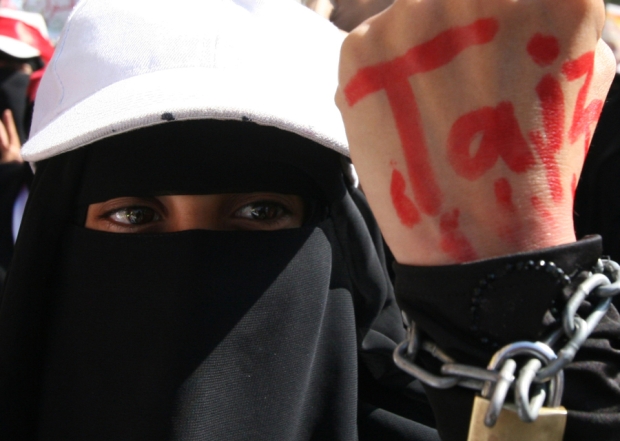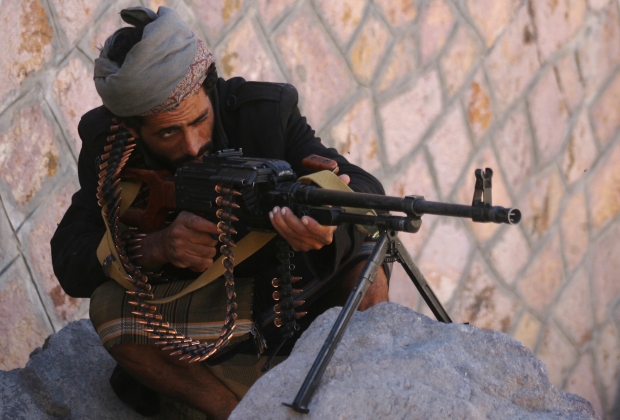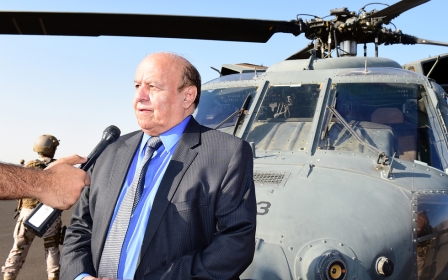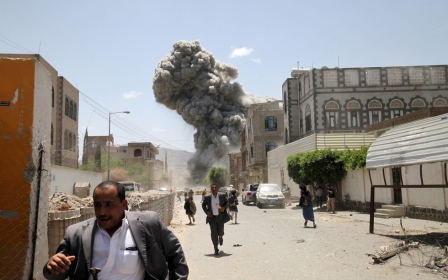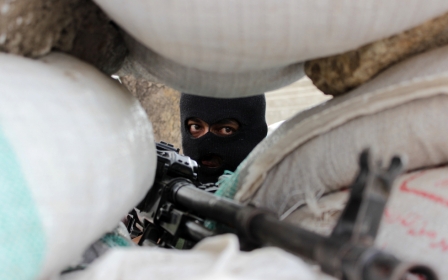Fighting just to survive in Yemen's bitter civil war
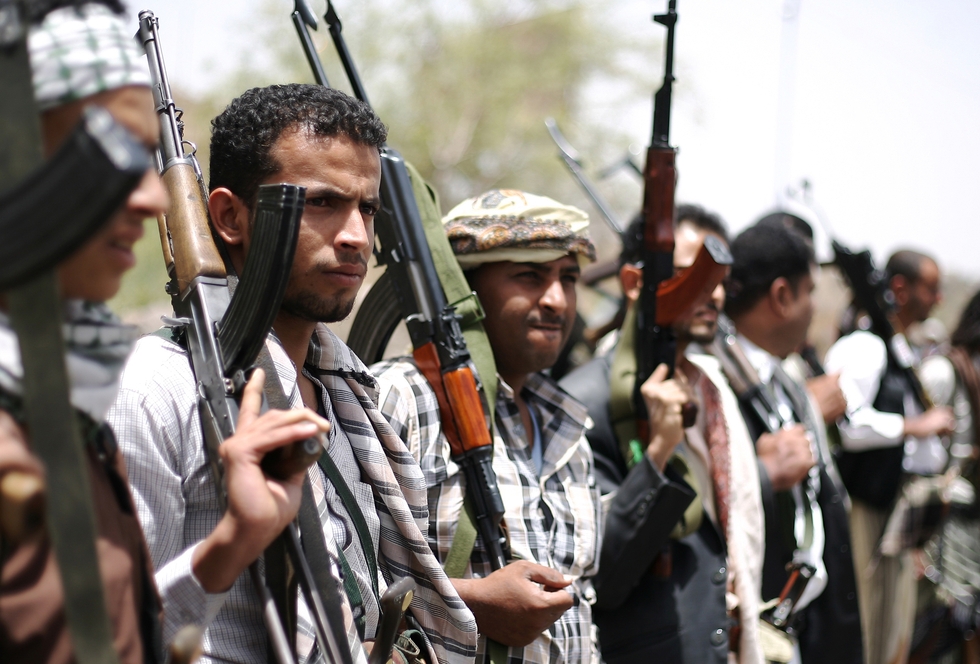
Taiz, Yemen – Ghalib and Younis grew up together in al-Rabesh, Taiz, a village community so tightly knit that both men share the same surname. Then Yemen fell into war, and now they fight each other.
Younis joined the Popular Resistance forces to fight the Houthis as invaders in his province.
But Ghalib joined the Houthis simply because it pays, in a region where joblessness and hopelessness prevail among its youth.
The war in Yemen has turned friend against friend, often only on the promise of a few dollars a day.
And it is a desperation that has torn apart families and sparked concerns that even if the war ends, it may be years if not generations before Yemen can recover any sense of normality.
New MEE newsletter: Jerusalem Dispatch
Sign up to get the latest insights and analysis on Israel-Palestine, alongside Turkey Unpacked and other MEE newsletters
Ghalib’s father, Fahim al-Robasi, told Middle East Eye that his 28-year-old son joined the Houthi militia in September.
"I am not a Houthi supporter and our family members are not Houthis, but Ghalib joined to get money,” he said. “He told us that his work is just standing at a Houthi checkpoint in Taiz city.
"I tried to persuade my son to leave the fighting and return to his village until the end of the war, then I will open a shop for him in Taiz city, but he refused and I am still trying to get him back.”
Fahim said Ghalib was among scores of young men from their community to have joined up for money.
Meanwhile Younis’ sister, Rawan al-Robasi, said that while her 29-year-old brother had expressed his hatred of the Houthis, she did not believe that he truly understood what he was fighting for, nor who he faced across the front line.
"There are some fighters with the Houthis and others with the resistance, and all of them belong to the same village,” she said.
“Somehow they think that they will not kill each other as both of them are fighting under the pretext of fighting invaders, but I do not know which invaders they mean.”
Rawan said her father, like many in her village, did not want his son to join in the fighting, and just wanted them back. They were dying for someone else’s cause, she added.
"The Holy Quran teaches us that Muslims are brothers. But those in the war do not want the Quran to be the judge and they only want to damage the country because of their own political interests.”
Yemen has descended into chaos since the Houthis marched south on Sanaa last year, pushing the government of Abd Rabbuh Mansour Hadi out of the capital and then the country, and sparking a Saudi-led war to reinstate him.
Thousands of people have been killed in the ensuing violence, with fronts opening in Sanaa, Aden and Taiz. The Houthis have besieged Taiz, Yemen's third city.
Fresh hopes of a solution emerged earlier this week when Hadi promised a ceasefire before planned peace talks in Geneva.
Hadi had previously refused to implement a ceasefire before negotiations could begin, a key demand from the Houthis.
Others, however, say there can be no going back to how things were, even if a ceasefire was agreed and peace followed.
Sameer al-Dhobhani, 22, from the Dhobhan area in Taiz, died in August fighting for $9 a day for the Popular Resistance on the al-Dhabab front, leaving his mother Aminah distraught.
"Sameer joined the battle only to get money to pay for qat,” she told Middle East Eye, in reference to a stimulant used in Yemen.
“He was single and did not fight to get some kind of income for a family. I used to love him more than his two brothers, but he did not obey me and joined the battle.
"I cried all my tears when my son was alive. When he was fighting, I used to cry most of the time, as I could not stop him from joining the battle. But now he is dead, and there is no need to cry."
Fadhl al-Dhobhani, a professor of sociology in Taiz University, told MEE that young men were joining the war due to the high levels of unemployment in the province. "The biggest effect of their participation will be bringing the war to their villages and there will be a real disaster," he said.
Mohammed Abdurrahman, the Imam of al-Qaresha mosque in al-Turbah, told MEE: "We started to warn the youths about the dangers of the war and tried to prevent them from joining the battle.”
He said the local community started rejecting young men who go to fight against the wishes of their families and that they are made to feel like they are doing something wrong.
Despite this, however, with the violence still raging, young men continue to flock to the fight. Abdurrahman says that very few heed warnings from their families or listen to criticism that they are only working to destabilise their country and communities further.
It is a sentiment shared by Sameer al-Dhobhani’s mother.
"When his friend tried to bring his body to my house, I refused to see him or even to let his body in my house. He was involved in the destruction of our country, so I will not forgive him as all wise men will not forgive the fighters," she said.
Middle East Eye delivers independent and unrivalled coverage and analysis of the Middle East, North Africa and beyond. To learn more about republishing this content and the associated fees, please fill out this form. More about MEE can be found here.


